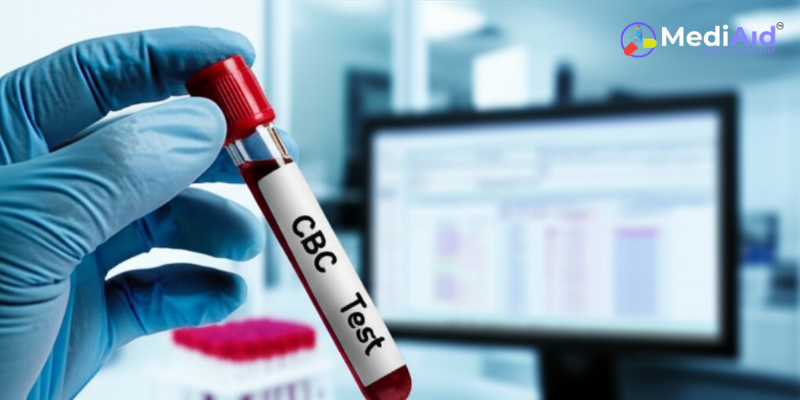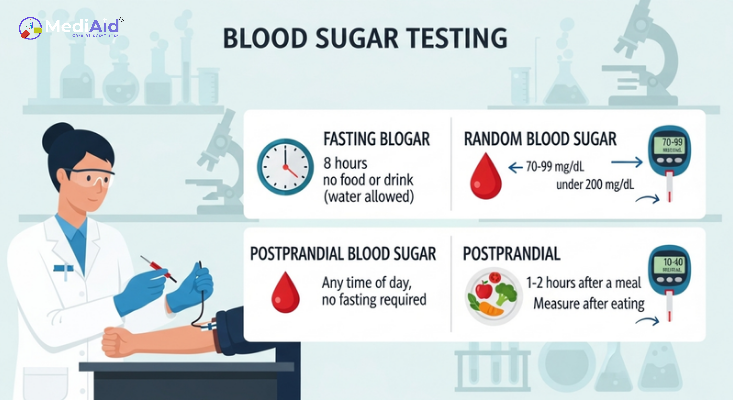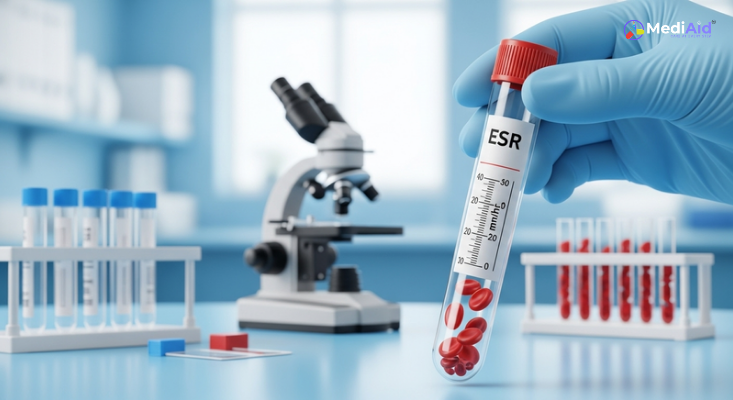What is a CBC Test?
A Complete Blood Count (CBC) is a common but essential blood test that evaluates the health and composition of your blood. It measures:
- 🔴 Red Blood Cells (RBC)
- ⚪ White Blood Cells (WBC)
- 🩸 Hemoglobin (Hb)
- 📊 Hematocrit (HCT)
- 🟣 Platelets (PLT)
- 🧬 Red Cell Indices: MCV, MCH, MCHC
CBC is a first-line test used to detect anemia, infections, inflammation, blood cancers, and immune system disorders.
🎯 Purpose of the CBC Test
- Detect anemia or polycythemia
- Identify infections or inflammation
- Diagnose leukemia or other blood cancers
- Monitor chronic diseases or treatment effects
- Evaluate symptoms like fatigue, fever, or bleeding
📋 Key Parameters in CBC
1. 🔴 Red Blood Cells (RBC)
- Function: Carry oxygen from lungs to body tissues
- Normal Ranges:
- Men: 4.7 – 6.1 million/µL
- Women: 4.2 – 5.4 million/µL
- Children: 4.1 – 5.5 million/µL
- Low RBC: Anemia, bone marrow issues, bleeding
- High RBC: Polycythemia vera, dehydration
2. 🩸 Hemoglobin (Hb)
- Function: Oxygen-carrying protein in RBCs
- Normal Ranges:
- Men: 13.8 – 17.2 g/dL
- Women: 12.1 – 15.1 g/dL
- Children: 11 – 16 g/dL
- Low Hb: Iron deficiency, chronic illness
- High Hb: Smoking, high altitude, lung diseases
3. 📊 Hematocrit (HCT)
- Function: Percentage of blood volume occupied by RBCs
- Normal Ranges:
- Men: 40 – 52%
- Women: 36 – 48%
- Reflects similar conditions as hemoglobin
4. ⚪ White Blood Cells (WBC)
- Function: Fight infection and support immunity
- Normal Range: 4,000 – 11,000 cells/µL
- High WBC: Infection, inflammation, leukemia
- Low WBC: Viral infections, bone marrow failure
5. 🟣 Platelets (PLT)
- Function: Help blood to clot and stop bleeding
- Normal Range: 150,000 – 450,000 cells/µL
- Low Platelets: Dengue, aplastic anemia, bleeding risk
- High Platelets: Risk of thrombosis, inflammation
6. 🔬 Red Cell Indices
These help identify the type and cause of anemia:
- MCV (Mean Corpuscular Volume)
- Normal: 80–100 fL
- ↓ MCV: Iron deficiency anemia
- ↑ MCV: Vitamin B12 or folate deficiency
- MCH (Mean Corpuscular Hemoglobin)
- Normal: 27–33 pg
- Reflects average hemoglobin per RBC
- MCHC (Mean Corpuscular Hemoglobin Concentration)
- Normal: 32–36 g/dL
- Shows average hemoglobin concentration per cell
👨⚕️ What Doctors Should Know
- CBC is a primary diagnostic tool for many conditions
- Trends over time are more meaningful than a single result
- Used for monitoring chemotherapy, bone marrow recovery, or chronic illness
- Results must align with clinical findings and may need confirmation via other tests (iron profile, B12, ESR, CRP, etc.)
🧍 What Patients Should Know
- It’s a simple blood test taken from a vein
- No fasting is usually needed
- Safe, quick, and reports are available within hours to 1 day
- Let your doctor know if you have:
- Taken recent medications
- Received vaccines or had infections
- History of bleeding or easy bruising
❗ When is a CBC Recommended?
- Fatigue, weakness, dizziness
- Persistent fever or signs of infection
- Unusual bruising or bleeding
- Monitoring cancer, kidney disease, or autoimmune conditions
- Pre-surgical health checkups
🧪 CBC Test Preparation
- Fasting: Not usually required
- Time: Can be done at any time of day
- Instructions: Avoid heavy physical activity before the test and inform your doctor about ongoing medications

 test.png)

